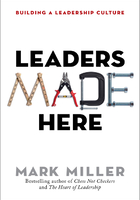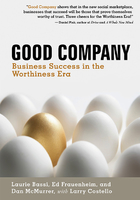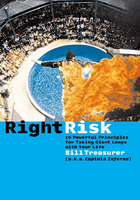Robert Kuttner
ACRISIS is also an opportunity. The financial collapse has not only pushed America into a deep recession. It has also discredited the dominant right-wing ideology that claims markets can do no wrong and that we're all on our own. And the need to prevent a crash from becoming a second great depression allows us to think big. Large-scale social investment suddenly becomes politically possible because it is economically urgent. When Congress, in three weeks, can find $700 billion for Wall Street, it no longer seems utopian to ask, Where is that kind of money for the rest of America?
For the past three decades, America has become a more precarious place for most of its citizens. Government has done less, when it should have done more. As corporations have ceased to provide reliable jobs, wages, health care, or retirement security, government has failed to step into the vacuum. As women as well as men have joined the workforce in large numbers, government policy has failed to address the needs of children and families. As carbon-based energy has become less reliable and more of a menace to the planet, government has failed to help develop alternatives. And as government has defaulted on these and other pressing challenges, people have tended to give up on the promise of democracy.
This hopeful book spells out the things that America should have been doing for the past three decades-initiatives that now become imperative in a crisis. It is long overdue that these ideas gain a hearing and become part of the accomplishments of the new administration.
The best thing about Thinking Big is the way it connects the dots. Larry Mishel and Nancy Cleeland discuss how government is indispensable to redeeming an economy of shared prosperity. If government can pull America back from the brink of depression, the same public investment so urgently needed for macroeconomic purposes can also make the economy fairer and more secure. Nathaniel Loewentheil and Vera Eidelman add a strong case for social investments of all kinds-human capital as well as physical capital.
Miles Rapoport and Stuart Comstock-Gay go on to connect the dots between restored hope in government's ability to change American life for the better and the renewal of American democracy. Only if democracy is strong can we expect our government to deliver. And only if government delivers can it reclaim popular faith in our common enterprise as Americans. The challenge entails repairing the mechanics of American democracy-from voting machines to election day registration- but it also requires redeeming the aspirations of democracy and once again engaging ordinary Americans in the enterprise of using the tools of democracy to make a constructive difference.
Ultimately, as Deepak Bhargava and Seth Borgos write, this enterprise is about values. In recent years, the political Right has claimed a monopoly on values. But democracy is also a value. Community is a value. And the idea that all people should have a decent life, free from discrimination and exclusion, is also a value. As the false utopian ideal of radical individualism has failed us once again, it's clear that most Americans share the value of community and mutual responsibility.
The conservative collapse is not only on the economic front. The Radical Right's vision of America's role in the world has also been a practical failure. As Jim Harkness and Alexandra Spieldoch write, we now have a chance for America to rejoin the world as a moral beacon, not as a bully. Leadership on climate change, food security, and a trading system that promises greater opportunity and prosperity to workers in the United States and in developing nations alike are only some of the goals that the new administration can and should pursue.
Deregulation was the prime cause of the financial collapse. Dean Baker's essay weaves together the connection between regulatory default and the effect on purchasing power, and proposes twin remedies that address both problems.
As Roger Hickey explains, there is no more pressing issue than health security. The collapsing system that we have is hurting workers, families, doctors and other health professionals, and American industry alike. If we proceed along the present path, we will suffer more cost shifting to patients, more cost cutting at the expense of care, more premium dollars pocketed by middlemen, and more health insecurity across the board. Just as this is a moment to reclaim America as a common enterprise on so many other fronts, it is a moment for universal health insurance.
And it is a green moment. As Van Jones and Jason Walsh tell us, conversion to a green economy creates multiple benefits from savings on imported carbon-based energy to saving the planet. But a green future also promises new jobs, new domestic industries, and a new focus on community, as well as durable infrastructure.
Put it all together, and you have an economy of greater democracy, greater security, and greater opportunity. As Alan Jenkins writes, this kind of economy is within our reach. All it takes is a markedly different set of national policies, anchored in a more inclusive and activist politics. Redeeming and fortifying constitutional rights will help bring that about.
These policies will also serve to rebuild the American middle class, write Andrea Batista Schlesinger and Amy Traub. That endeavor also requires several policies that are now within our reach, from the Employee Free Choice Act to much stronger supports for working families.
The best thing about this collection of essays is that it anchors the entire program in broadly shared values. Some of the voices are well-known progressives; some are new. But the values and aspirations are enduring. And some of the proposals are long-deferred progressive claims, while others are entirely fresh approaches to new problems.
Those on the now-discredited Right would say these are old ideas-ideas from the era of the New Deal or the Great Society eras. But that question depends on how long your memory is. If memory extends back to the robber baron era of the 1880s and 1890s, or to the era of Louis XVI, or to the pharaohs, you realize that the oldest and most discredited idea is that society exists for the benefit of the few. Greater democracy is always a fresh idea and an insurgent one. There are historical moments when democracy can be on the march again, and this is one.
Author
Robert Kuttner is a cofounder and coeditor of The American Prospect magazine, as well as a Distinguished Senior Fellow of the think tank Demos. He was a longtime columnist for Business Week and continues to write columns in the Boston Globe. His latest book is Obama's Challenge: America's Economic Crisis and the Power of a Transformative Presidency, a New York Times best seller. His best-known earlier book is Everything for Sale: The Virtues and Limits of Markets (1997). Kuttner's other previous books on economics and politics include The End of Laissez-Faire (1991), The Life of the Party (1987), The Economic Illusion (1984), and Revolt of the Haves (1980). His magazine writing has appeared in the New York Times Magazine and Book Review, The Atlantic, The New Republic, the New Yorker, Dissent, the Columbia Journalism Review, and the Harvard Business Review. He has contributed major articles to the New England Journal of Medicine as a national policy correspondent. For four decades, Kuttner's intellectual and political project has been to revive the politics and economics of harnessing capitalism to serve a broad public interest. He has pursued this ideal as a writer, editor, teacher, lecturer, commentator, and public official.















